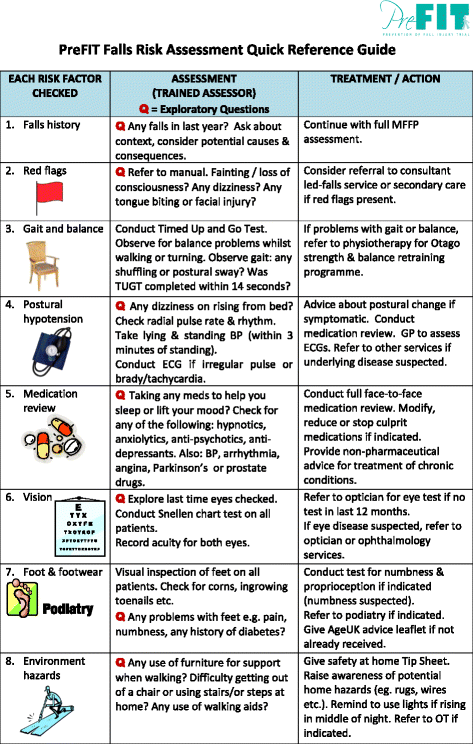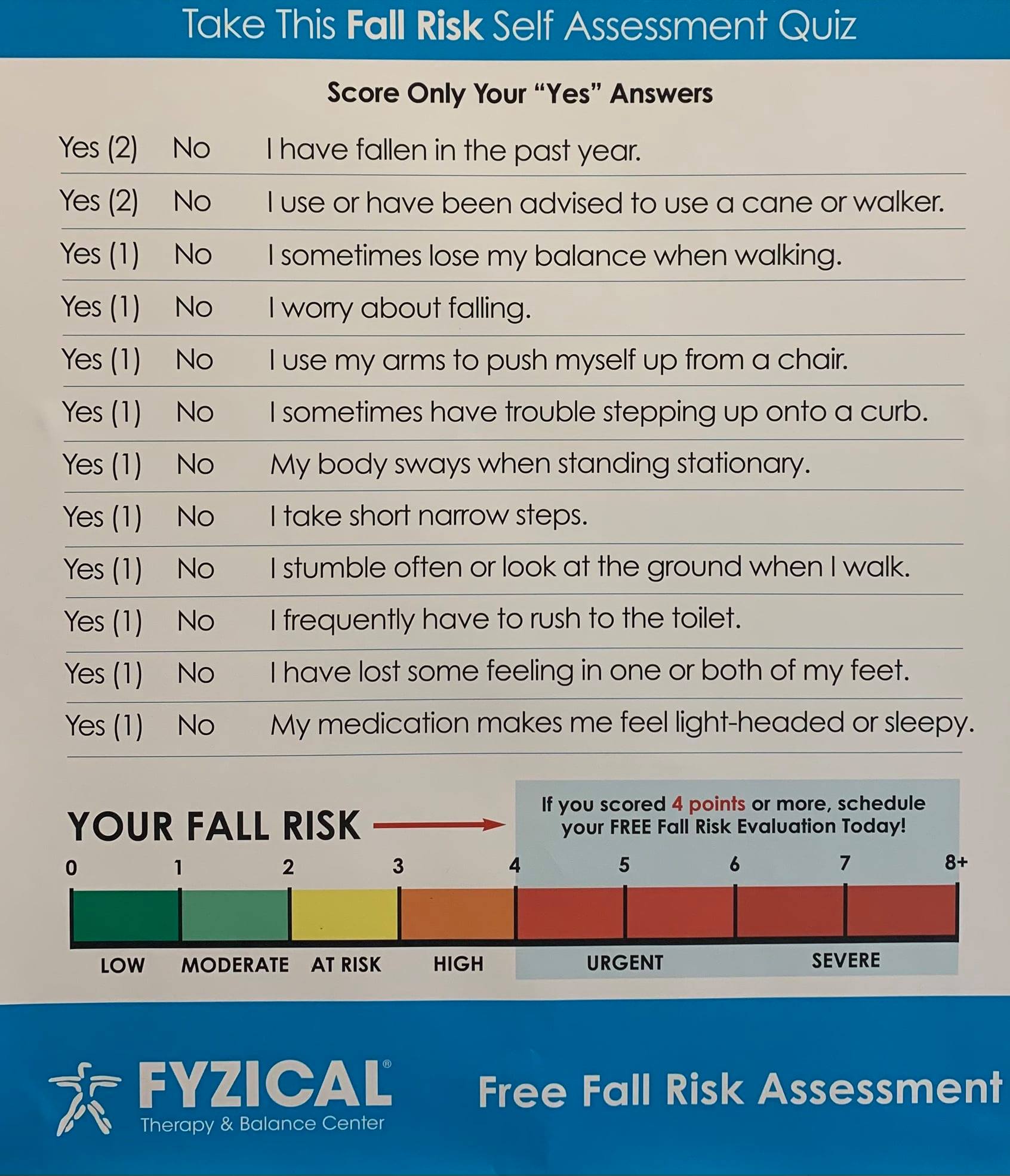Dementia Fall Risk Fundamentals Explained
Some Known Details About Dementia Fall Risk
Table of ContentsThe smart Trick of Dementia Fall Risk That Nobody is Talking AboutSome Known Details About Dementia Fall Risk Fascination About Dementia Fall RiskUnknown Facts About Dementia Fall Risk
An autumn threat evaluation checks to see just how likely it is that you will drop. It is primarily provided for older grownups. The evaluation normally consists of: This includes a collection of concerns about your total health and if you have actually had previous drops or troubles with balance, standing, and/or strolling. These tools examine your toughness, balance, and gait (the means you stroll).Interventions are suggestions that may lower your threat of falling. STEADI includes 3 actions: you for your danger of falling for your danger variables that can be improved to attempt to avoid falls (for instance, equilibrium issues, damaged vision) to reduce your risk of falling by using reliable approaches (for example, supplying education and sources), you may be asked several questions consisting of: Have you fallen in the past year? Are you worried concerning dropping?
After that you'll sit down once more. Your supplier will certainly examine how lengthy it takes you to do this. If it takes you 12 secs or even more, it might mean you go to higher danger for a loss. This examination checks toughness and equilibrium. You'll being in a chair with your arms went across over your chest.
The positions will get harder as you go. Stand with your feet side-by-side. Relocate one foot midway onward, so the instep is touching the large toe of your various other foot. Move one foot completely before the other, so the toes are touching the heel of your other foot.
How Dementia Fall Risk can Save You Time, Stress, and Money.
Most falls take place as a result of numerous adding aspects; consequently, handling the threat of dropping starts with recognizing the factors that add to drop risk - Dementia Fall Risk. Several of the most pertinent threat variables include: History of previous fallsChronic medical conditionsAcute illnessImpaired gait and balance, lower extremity weaknessCognitive impairmentChanges in visionCertain risky drugs and polypharmacyEnvironmental factors can also raise the danger for falls, consisting of: Inadequate lightingUneven or damaged flooringWet or unsafe floorsMissing or harmed handrails and order barsDamaged or poorly equipped devices, such as beds, wheelchairs, or walkersImproper usage of assistive devicesInadequate supervision of the people residing in the NF, consisting of those that display hostile behaviorsA effective loss threat management program calls for a thorough scientific assessment, with input from all members of the interdisciplinary group

The treatment plan must additionally consist of treatments that are system-based, such as those that promote a safe setting (suitable lights, handrails, get hold of bars, and so on). The performance of the treatments must be examined periodically, and the treatment plan revised as required to reflect changes in the loss danger evaluation. Implementing a fall danger monitoring system using evidence-based ideal practice can minimize the prevalence of falls in the NF, look at more info while restricting the potential for fall-related injuries.
9 Simple Techniques For Dementia Fall Risk
The AGS/BGS guideline recommends screening all grownups matured 65 years and older for loss threat annually. This screening includes asking people whether they have dropped 2 or more times in the past year or sought medical interest for a loss, or, if they have actually not dropped, whether they feel unstable when walking.
People that have fallen as soon as without injury must have their balance and stride examined; those with stride or balance irregularities ought to receive added analysis. A background of 1 autumn without injury and without gait or balance problems does not call for more assessment beyond ongoing annual loss danger testing. Dementia Fall Risk. A fall threat evaluation is needed as component of the Welcome to Medicare examination

How Dementia Fall Risk can Save You Time, Stress, and Money.
Documenting a falls background is one of the top quality indications for loss avoidance and monitoring. An essential component of threat analysis is a medication evaluation. Numerous my response courses of pop over to these guys drugs enhance autumn risk (Table 2). copyright drugs in specific are independent forecasters of falls. These medications have a tendency to be sedating, modify the sensorium, and hinder equilibrium and gait.
Postural hypotension can often be reduced by lowering the dosage of blood pressurelowering medications and/or quiting medicines that have orthostatic hypotension as a negative effects. Usage of above-the-knee assistance tube and copulating the head of the bed raised might likewise lower postural reductions in high blood pressure. The preferred elements of a fall-focused physical exam are displayed in Box 1.

A Pull time greater than or equivalent to 12 seconds suggests high loss danger. Being unable to stand up from a chair of knee elevation without making use of one's arms suggests increased loss risk.